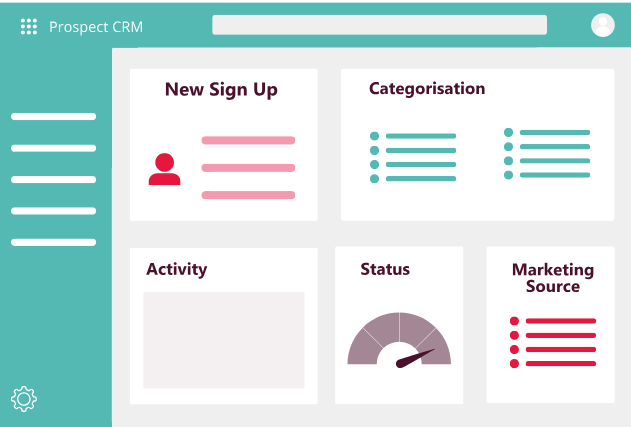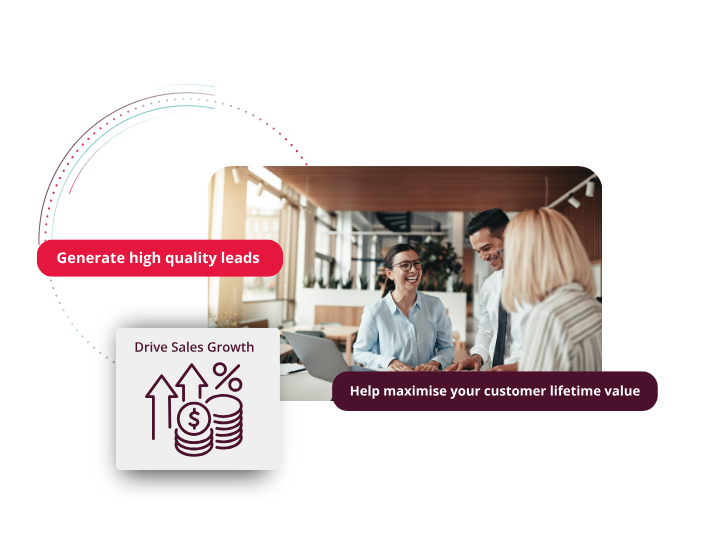




CRM stands for customer relationship management, which is a system for managing all of your company’s interactions with current and potential customers. The goal is simple: improve relationships to grow your business. CRM technology helps companies stay connected to customers, streamline processes, and improve profitability.
When people talk about CRM, they’re usually referring to a CRM system: software that helps track each interaction you have with a prospect or customer. That can include sales calls, customer service interactions, marketing emails, and more.
CRM tools can unify customer and company data from many sources and even use AI (artificial intelligence) to help better manage relationships across the entire customer lifecycle, spanning departments like marketing, sales, digital commerce, and customer service interactions.
That’s the CRM definition. So why is CRM important, and who can benefit? Let’s take a look.

Prospect CRM’s opportunities are a great way to help your Sales team track and close new customer sales. Record information such as a potential sale’s estimated value, what type of sale it is, any notes as the opportunity moves through the sales process, and much more. CRM Pipelines help identify the stage that the potential sale is at and where possible sales are falling out of the sales pipeline to improve conversion rates.

Opportunity tracking helps businesses manage sales pipelines by tracking potential deals from initial contact to closure. It ensures sales teams stay organised, prioritise high-value opportunities, and increase conversion rates.
Use opportunity tracking to better manage your opportunity pipelines, refine processes, and boost sales efficiency.
CRM in sales is a system and strategy that helps sales teams monitor the sales cycle and manage interactions with prospects and customers throughout the sales pipeline. It centralizes customer data, tracks communication history, and monitors sales activities, allowing salespeople to better understand customer needs and preferences. CRMs help sales teams automate follow-ups, generate leads, and more to drive higher conversion rates and growth.
In marketing, CRM manages and analyzes customer interactions to improve engagement, build loyalty, and drive sales. By centralizing customer information, CRM systems help create targeted marketing strategies and assess which tasks to automate, like email campaigns or social media outreach.
Simply put, you know your CRM is effective when you see increases in key metrics like conversions, customer satisfaction, and retention. The CRM needs to help your sales strategies by providing clear insights and analyzing customer interactions. It should also be easy to use so your people can focus on building customer relationships, not training to use software.
To build a successful CRM strategy, businesses should focus on understanding customers’ needs and behaviors by leveraging data and technology. This involves implementing a sales-focused CRM system centralizing customer information, enabling reps to personalize communication and engagement.
The system should be able to segment customers, automate marketing and sales processes, ensure consistent and meaningful interactions across all touchpoints, and regularly analyze performance metrics to adjust strategies. If the tool can foster collaboration between sales and customer service teams—as SEOinbd does—it will ensure a seamless customer experience, driving loyalty and long-term business growth.
© 2025 — SEOinbd Ltd